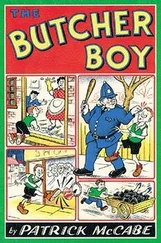“Where can I meet you?” asked Elizabeth.
“How about here, if it’s just a few questions? I’ll be at the American Airlines desk in about twenty minutes. I’ll be in a light gray suit, looking impatient. And you?”
“I’ll be the lady carrying the Senator’s notebook.”
* * *
WHEN SHE SAW HIM HE was standing at the ticket counter staring at his watch, then craning his neck out of the stiff shirt collar with his mouth slightly open as though to demonstrate to anyone in his vicinity that he was a man who was being unjustly delayed by petty matters. When he spotted her striding toward him with the notebook, he leaned back against the counter and pursed his lips in a look of sardonic displeasure.
Elizabeth tried to remind herself that he probably was being delayed by petty matters—by a piece of evidence that wasn’t likely to be evidence of anything in particular—but she knew that the people in the ticket line were thinking that she was an incompetent secretary who had misplaced an important document and made her employer, the efficient-looking, carefully tailored and barbered man in the gray suit whose glasses were even now glittering little semaphores of disdain at her, late. She couldn’t forgive him that. So when she was still seven feet away she said, “Relax, Mister Carlson, you’re not under arrest. We just want to have a talk.” She spoke in a voice that sounded as though it was meant to reassure a man who was essentially a coward.
His reaction brought to birth a smile she had to stifle: it was as though he had been prodded from behind. He was off and walking and she almost had to run to catch up. He didn’t stop until he was no longer visible to the people at the counter. He was definitely annoyed. “Miss Waring, I thought you people were much more discreet.”
Elizabeth just gave him a puzzled look, then appeared to dismiss his odd behavior by placing it in some category well known to professional investigators who were accustomed to seeing people at their worst. She said, “Well, shall we get started? I’d hate to have you miss the next flight.” It was said with what could almost have been taken as sympathy if they hadn’t understood each other so well.
“All right,” he said. “Where?”
“I’ve made arrangements to borrow a conference room.”
They were expected at the airport courtesy desk. The room was off the main lobby and contained ten chairs, three of which looked comfortable, and a long wooden table. There were no windows, but a painting of an undifferentiated landscape was hung along the far wall. They both chose utilitarian chairs at the table. Elizabeth opened the Senator’s notebook and took out her own.
“Mr. Carlson, why were you going back to Washington today?”
“Because Senator Claremont is dead. There didn’t seem to be anything I could do about it and Agent Lang said I might as well go. You people were through with me. Am I under suspicion?”
“No, of course not,” said Elizabeth, as though the idea had never crossed her mind.
“That’s good, because if I am, we’ll stop this right now while I get my lawyer.”
“I’d thought of that,” said Elizabeth, “but that would be time consuming, and we didn’t want to delay you any longer than necessary. If you’ll just give me the best cooperation you can, I’m sure we can get through this quickly.
“Tell me what you know about this notebook.”
“It’s not really a notebook. It’s a scratch pad. The Senator liked to keep it by him so he could jot down things that occurred to him when he didn’t have time to do anything about them,” said Carlson. “He had a rotten memory and had the sense to know it, so he wrote things down.”
“Did it work?”
“Most of the time he’d remember to keep the rest of us informed. The appointments would get transferred to his calendar and so on. Sometimes he’d forget. Sometimes he’d even forget where he’d put the notebook—leave it in some hearing room or a press conference or someplace. But it always turned up.”
“I’d like to go through a few portions of it and see if you can help me understand it,” said Elizabeth.
“Sure,” said Carlson. He glanced at his digital wristwatch as though he were going to charge for his time beginning now. Then he opened the notebook and began to read it aloud. “Dinner the seventh—S.A. That’s the dinner the Saudi Arabian ambassador gave on the seventh of January. He never could remember the ambassador’s name, which is Ruidh, so he gave up trying. Call R.T.T., that’s got to be Ronald T. Taber, the congressman from Iowa. They were in on a farm bill a few years back, and now and then one or the other would call to compare notes on how it was working.”
Elizabeth wrote quickly, trying to catch as much as she could, and hoping that the order of it would help her put it back together later. Carlson went on, looking and talking as though it were a family album full of vaguely familiar faces. He was good, she had to admit. He seemed to know what everything was and how it came to be that way.
Finally he came to the list and stopped. “I don’t know what all this is,” he said. “It must relate to the tax hearings that he was planning for the fall.”
“Relate in what way?”
“Well,” said Carlson, “there was a special staff for the committee, which handled details for the hearings. They’re more likely to be able to tell you for sure than I am. This isn’t anything I handled.”
“But what does it look like?”
“It’s a list of corporations—all sizes and shapes. See? Bulova, General Motors, Eastman Kodak. Then you get ones nobody ever heard of—Gulf Coast Auto Leasing, Standard Hardware. North Country Realty. A few that are utilities: PG&E, Commsat, FGE, Con Ed.”
“What do you think he was going to do with them?”
“Maybe use them in a speech, maybe subpoena their books, maybe call somebody to testify. I don’t know. They have a staff for that.”
“Who would know?”
“Justin Garfield would. Staff counsel. This list is over a month old and if it has anything to do with the committee, he’d probably have been in on it by now. You can’t call in General Motors and tell them to be there next week with a shoebox full of receipts and tax forms. It takes time to get it together in a form that one person can look at.”
Elizabeth turned the notebook toward her and glanced down the list. “What does PG&E stand for?”
“Pacific Gas and Electric. Oh, yes, I forgot. You’re from the East.”
“And FGE?”
“Probably Florida Gas and Electric.”
“Where do I get in touch with Justin Garfield?”
Carlson pulled a leather address book out of his inside pocket and read, “(202) 692-1254, extension 2. Should we go on?”
“Please.”
Carlson returned to his translation, moving from page to page with renewed confidence. It was clear that senators didn’t get much time for solitude or much privacy either. Carlson knew whom the Senator had seen, whom he’d called, and what they’d talked about. Twice he had to turn to his own address book and match a telephone number with an initial, but that was only to verify. At last they reached the end of it and Carlson said, “Is that all you wanted from me?”
“Yes, Mr. Carlson. Thank you for your cooperation. Where can I reach you if we need to ask anything else?”
“For now, in the Senator’s office. If my situation changes, I’ll let the FBI know.” He glanced at his watch again and said, “Good-bye.” They didn’t shake hands before he went out, closing the door behind him.
AT THE CONSTELLATION HOTEL the only sign that there was anything that hadn’t been planned and provided by a solicitous and efficient management was that the elevator wouldn’t stop at the fourth floor.
Читать дальше












